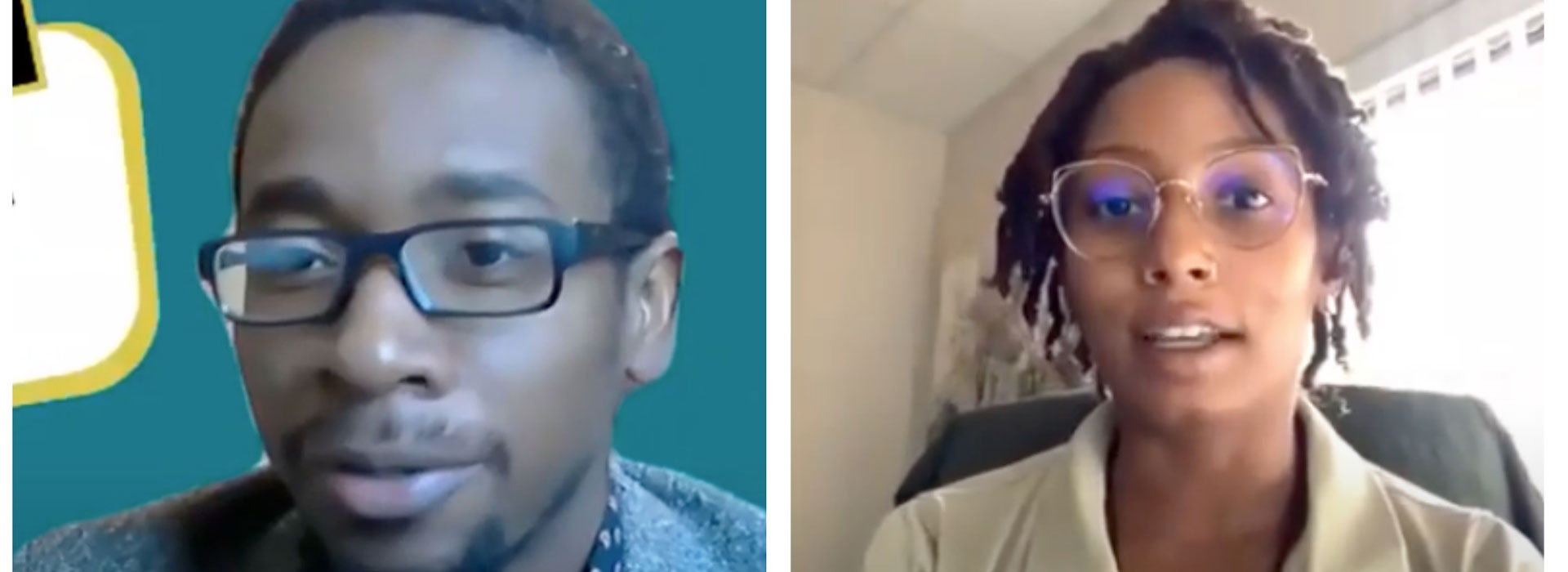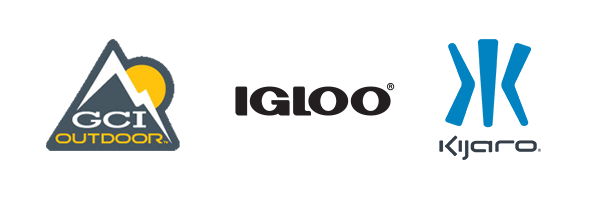Spanning the Gap
By James Edward Mills

When they signed up for The Bridge Project, young professionals just starting their careers in the outdoor industry, Bridget Arnudel and Sade Moore, thought they were just attending another online conference of environmental organizations over Zoom—but what they got through this innovative new program, spearheaded by the Greening Youth Foundation (GYF), was a meaningful career boost. “I had no idea what to expect,” says Moore. “I was thinking, professional development and networking, things like that. I didn’t know that I’d get an actual job out of it!”
In partnership with a variety of different institutions from across the country, GYF assembled a group of more than 170 prospective job candidates for The Bridge Project. Over the course of a three-day event, 12 organizations, ranging from the Trust For Public Land to the Montana Wild and REI, hired 17 people. With the explicit intention of engaging people of color—individuals who are disproportionately underrepresented in the environmental-conservation sector—The Bridge Project aimed to provide attendees an opportunity to receive basic skills training and the personal assistance necessary to navigate the complicated pathways of hiring.
Though duly qualified with advanced degrees in communications and broad experience as interns or limited-term employees, both Arnudel and Sade Moore faced more than a few cultural barriers that limited their access to the outdoor job market. As the first woman in her family to graduate from college, Arnudel says she needed a little help to point her in the right direction. Guided by The Bridge Project’s manager Hannah Malvin, she got good advice on landing a new job that suits her skill set and negotiating her salary and benefits.
“Having that coach or that mentor was really transformational,” she says. “Coming from my background, I haven’t always had someone to do those kinds of things with me.”
Though many outdoor-facing organizations have publicly expressed their desire to become more diverse, equitable, and inclusive, most have struggled with exactly how to make it happen. In both the public and private sectors, employers can’t seem to find a pool of job applicants that adequately reflects the population as a whole, which includes a growing number of people of color. With expertise in recruiting and training students from historically Black colleges and universities, tribal colleges, and Hispanic heritage institutions of higher learning for entry-level positions a federal agencies of public land management, GYF is uniquely situated to assist human resource managers in hiring new talent. During The Bridge Project online event, more than 25 organizations were able engage with dozens of excellent prospects.
“We had employers that were so impressed that they created positions for these candidates,” says GYF founder Angleou Ezeilo. “So, I think we touched on a nerve of something that was really needed.”
A direct pipeline to job candidates of color is perhaps just what the outdoor industry has been looking for. Organizations are beginning to understand that they need to hire employees with the lived experience and personal understanding of the populations they aim to serve but have too often neglected.
“My colleagues within the environmental and climate movements have a long way to go in terms of representation and inclusiveness. That’s what attracted us to this,” says Jessica Jewell Lanier, the director of digital communications at the Water Hub, a division of the environmental nonprofit Climate Nexus. “We’re hoping to be a model for the larger organization, a center for justice and equity and inclusion and hiring practices to make sure that we increase the visibility of folks of color at the org.”
Lanier hired both Moore and Arnudel through The Bridge Project to help better connect with marginalized Black and brown communities that are most directly impacted by disparities of access to fresh drinking water. The participation of Climate Nexus in the program was encouraged by the organization’s desire to become more diverse internally as well.
“The Bridge Project was a facilitator,” Lanier says. “It was supportive of both the candidates and of the hiring managers, educating us and making us better in our hiring decisions and our equity within the workplace.”
The initiative also provides a system of sup-port to help applicants with the cultural aware-ness they need beyond the professional and technical skills to excel on the job. Project team member Leandra Taylor, who helped to screen and select the participants, says the program can help new hires ease some of the anxieties of an unfamiliar work environment.
“I am empowered in The Bridge Project to create pathways that weren’t there for me,” she says. “And one of those ways is having coaches and having an opportunity to talk to people that look like you, that have been where you’ve been and have good intentions in supporting you.”
In addition to inspiring mentors and noted DEI experts like José Gonzalez and Dr.Carolyn Finney, The Bridge Project also aims to work with colleges and universities to provide the outdoor industry with more clearly-defined national standards of professional expertise. Too often, entry-level positions are only available to those with the privilege of having grownup in a mountain town or with regular exposure from an early age to hiking trails and ski hills. In a workplace that has few codified career paths, it is important to provide aspiring job applicants with a better understanding of what will be expected of them in their new positions.
“Things like internships and job-matching programs and hiring events are really hard to scale sustainably if we don’t have agreement between education and industry about what the job titles are and what the competencies are that are necessary to meet those jobs,” says Lee Davis, executive director of the Center for the Outdoor Recreation Economy at Oregon State University. “That uniformity of standard has a really strong impact, I think, to building an inclusive, diverse workforce, because it means you don’t have to live in Vail next to Colorado Mountain College to work in the ski industry.”
By laying the groundwork for university-based training in everything from information technology and product design to natural resource management and adventure tourism, The Bridge Project has the potential to span the gap between emerging young professionals and career paths in the outdoor industry. Another facilitated hiring event is scheduled for the Fall.
Outdoor Retailer Magazine is made possible with sponsorship by:
